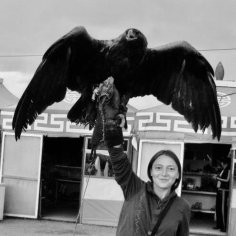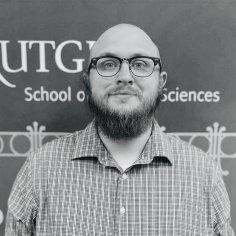-
Humanitaarteaduste ja kunstide valdkondHumanitaarteaduste ja kunstide valdkonna dekanaatJakobi 2 ruumid 116–121, 51005 Tartu linn, EST0Ajaloo ja arheoloogia instituutJakobi 2 51005 Tartu linn, Tartu linn, Tartumaa EST0Eesti ja üldkeeleteaduse instituutJakobi 2, IV korrus 51005 Tartu linn, Tartu linn, Tartumaa EST0Filosoofia ja semiootika instituutJakobi 2, III korrus, ruumid 302-337 51005 Tartu linn, Tartu linn, Tartumaa EST0Kultuuriteaduste instituutÜlikooli 16 51003 Tartu linn, Tartu linn, Tartumaa EST0Maailma keelte ja kultuuride instituutLossi 3 51003 Tartu linn, Tartu linn, Tartumaa EST0UsuteaduskondÜlikooli 18 50090 Tartu linn, Tartu linn, Tartumaa EST0Viljandi kultuuriakadeemiaPosti 1 71004 Viljandi linn, Viljandimaa EST0Humanitaarteaduste ja kunstide valdkonna emeriitprofessorid0Humanitaarteaduste ja kunstide valdkonna emeriitdotsendid0Sotsiaalteaduste valdkondSotsiaalteaduste valdkonna dekanaatLossi 36 51003 Tartu linn, Tartu linn, Tartumaa EST0Haridusteaduste instituutJakobi 5 51005 Tartu linn, Tartu linn, Tartumaa EST0Johan Skytte poliitikauuringute instituutLossi 36, ruum 301 51003 Tartu linn, Tartu linn, Tartumaa EST0MajandusteaduskondNarva mnt 18 51009 Tartu linn, Tartu linn, Tartumaa EST0Psühholoogia instituutNäituse 2 50409 Tartu linn, Tartu linn, Tartumaa EST0ÕigusteaduskondNäituse 20 - 324 50409 Tartu linn, Tartu linn, Tartumaa EST0Ühiskonnateaduste instituutLossi 36 51003 Tartu linn, Tartu linn, Tartumaa EST0Narva kolledžRaekoja plats 2 20307 Narva linn, Ida-Virumaa EST0Pärnu kolledžRingi 35 80012 Pärnu linn, Pärnu linn, Pärnumaa EST0Sotsiaalteaduste valdkonna emeriitprofessorid0Sotsiaalteaduste valdkonna emeriitdotsendid0Meditsiiniteaduste valdkondMeditsiiniteaduste valdkonna dekanaatRavila 19 50411 Tartu linn, Tartu linn, Tartumaa ESTBio- ja siirdemeditsiini instituutBiomeedikum, Ravila 19 50411 Tartu linn, Tartu linn, Tartumaa ESTFarmaatsia instituutNooruse 1 50411 Tartu linn, Tartu linn, Tartumaa ESTHambaarstiteaduse instituutL. Puusepa 1a 50406 Tartu linn, Tartu linn, Tartumaa ESTKliinilise meditsiini instituutL. Puusepa 8 50406 Tartu linn, Tartu linn, Tartumaa ESTPeremeditsiini ja rahvatervishoiu instituutRavila 19 50411 Tartu linn, Tartu linn, Tartumaa ESTSporditeaduste ja füsioteraapia instituutUjula 4 51008 Tartu linn, Tartu linn, Tartumaa ESTMeditsiiniteaduste valdkonna emeriitprofessorid0Meditsiiniteaduste valdkonna emeriitdotsendid0Loodus- ja täppisteaduste valdkondLoodus- ja täppisteaduste valdkonna dekanaatVanemuise 46 - 208 51003 Tartu linn, Tartu linn, Tartumaa ESTArvutiteaduse instituutNarva mnt 18 51009 Tartu linn, Tartu linn, Tartumaa ESTGenoomika instituutRiia 23b/2 51010 Tartu linn, Tartu linn, Tartumaa ESTEesti mereinstituutMäealuse 14 12618 Tallinn, Harjumaa EST0Füüsika instituutKeemia instituutRavila 14a 50411 Tartu linn, Tartu linn, Tartumaa EST0Matemaatika ja statistika instituutNarva mnt 18 51009 Tartu linn, Tartu linn, Tartumaa EST0Molekulaar- ja rakubioloogia instituutRiia 23, 23b - 134 51010 Tartu linn, Tartu linn, Tartumaa ESTTartu observatooriumObservatooriumi 1 61602 Tõravere alevik, Nõo vald, Tartumaa EST0TehnoloogiainstituutNooruse 1 50411 Tartu linn, Tartu linn, Tartumaa ESTÖkoloogia ja maateaduste instituutJ. Liivi tn 2 50409 Tartu linn, Tartu linn, Tartumaa ESTLoodus- ja täppisteaduste valdkonna emeriitprofessorid0Loodus- ja täppisteaduste valdkonna emeriitdotsendid0Bioinseneeria instituutNooruse 1 50411 Tartu linn, Tartu linn, Tartumaa ESTAkadeemilise sekretäri tegevusvaldkondPersonaliosakondUppsala 6, Lossi 36 51003 Tartu linn, Tartu linn, Tartumaa EST0Finantsjuhi tegevusvaldkondRahandusosakondJakobi 4 51005 Tartu linn, Tartu linn, Tartumaa EST0Kantsleri tegevusvaldkondInfotehnoloogia osakondUppsala 10 51003 Tartu linn, Tartu linn, Tartumaa EST0KantseleiÜlikooli 17 (III korrus) 51005 Tartu linn, Tartu linn, Tartumaa EST0Kinnisvaraosakond0Turundus- ja kommunikatsiooniosakondÜlikooli 18, ruumid 102, 104, 209, 210 50090 Tartu linn, Tartu linn, Tartumaa EST0Arendusprorektori tegevusvaldkondEttevõtlus- ja innovatsioonikeskusNarva mnt 18 51009 Tartu linn, Tartu linn, Tartumaa EST0Loodusmuuseum ja botaanikaaedVanemuise 46 51003 Tartu linn, Tartu linn, Tartumaa EST0Rahvusvahelise koostöö ja protokolli osakond0MuuseumLossi 25 51003 Tartu linn, Tartu linn, Tartumaa EST0Rektori tegevusvaldkondRektoraadi bürooÜlikooli 18 50090 Tartu linn, Tartu linn, Tartumaa ESTSiseauditi bürooÕppeprorektori tegevusvaldkondÕppeosakondTeaduskoolUppsala 10 51003 Tartu linn, Tartu linn, Tartumaa EST0Üliõpilaskonna bürooÜlikooli 18b 51005 Tartu linn, Tartu linn, Tartumaa EST0Õppimis- ja õpetamiskeskusLossi 36-401 51003 Tartu linn, Tartu linn, Tartumaa ESTTeadusprorektori tegevusvaldkondTartu Ülikooli raamatukoguW. Struve 1 50091 Tartu linn, Tartu linn, Tartumaa EST0GrandikeskusRaekoja plats 9, III korrus 51004 Tartu linn, Tartu linn, Tartumaa EST

People at the Mongolian Research Lab

Dr Alevtina Solovyeva
Head of the Centre for Oriental Studies, Director of the Mongolian Research Laboratory
Alevtina Solovyeva specialises in comparative Asian studies, Chinese and Mongolian studies, folkloristics, historical and social anthropology, social sciences.
She obtained her first PhD degree in Asian studies (2016), and the second in Folkloristics (2021). She undertook her postdoctoral research at the Faculty of Social Anthropology, University of Cambridge (2022).
She has been conducting her fieldwork research within various projects in Mongolia, China and other regions of Inner, Central and East Asia annually starting from 2006.
Her current topics of research look at the transnational relations of peoples in Central and East Asia, Mongolian peoples’ communities, beliefs and practices, processes and movements in Mongolia, China and Russia, rural and urban cultures, infowars, propagandas and social imagination.
Ms Yanjinlkham (Yanji) Dashtseren
Assistant
Yanjinlkham Dashtseren is a MA student of Folkloristics and Applied Heritage at the Department of Estonian and Comparative Folklore at the University of Tartu. She is interested in the Buriad, a minority ethnic group in Mongolia. Being Buriad herself, her Master's thesis is likely to address the topic of post-memory of forced migration of the Buriad that took place in the early 20th century. She has a Bachelor's degree in computer sciences from the National University of Mongolia (2008), and extensive work experience as an IT coordinator and general manager at international companies.
Tuya Shagdar
Visiting Scholar (Mar 2024-...; remote work)
Tuya Shagdar is an anthropologist working in Mongolia. Her research focuses on the emergent political forms, legacies of state socialism, and Mongolian Buddhism. She recently defended her PhD in Social Anthropology at the University of Cambridge with a dissertation focusing on postsocialist transformations through the method of studying up. Tuya also holds a degree in comparative literature which enabled her to teach courses in literary theory and film studies at the National University of Mongolia. She speaks Mongolian, Russian, and English in addition to basic knowledge of Japanese and French.

Dr Tobias Jones
Visiting Scholar (May 2024-...; remote work)
Dr Tobias Jones is scholar working on the Mongol Empire, largely from the point of view of the Middle East. Dr Jones completed his Bachelor’s degree in 2011 at the University of St Andrews in the UK, in the field of Mediaeval History. He then moved to the Netherlands, where he completed a Research Master’s programme at Leiden University. In this programme, he began learning Persian, and wrote his Master’s thesis on the idea of the ‘Pax Mongolica’. He continued on to a PhD at Leiden, which was completed in January 2023, focusing on Chinggisid loyalty networks and how they were adapted by the successor state in Iran, the Ilkhanate. He is currently a lecturer in Middle Eastern Studies at Leiden University.
Publications:
‘The Objects of Loyalty in the Early Mongol Empire (Twelfth and Thirteenth Centuries)’, Iran, (April 2021), https://doi.org/10.1080/05786967.2021.1915701
‘The Curious Case of the Iniquitous In-laws: Oirat Disloyalty in Mongol Iran’, Submitted for Peer Review.
‘Mongol Loyalty Networks: Cultural Transmission and Chinggisid Innovation’, PhD Dissertation, Leiden University, 2023
FORMER EMPLOYEES AND VISITORS

Dr Mari Valdur
Research Fellow
Mari is a social anthropologist who defended her PhD thesis Life and Abortion: The Post-Biopolitics of Reproductive Health in Ulaanbaatar, Mongolia at the University of Helsinki in 2020. After her doctoral studies she took up a short visiting scholarship at the University of Cambridge; a visiting lectureship at Tallinn University; and a one-year postdoctoral project Gender Affects: Categories, Capitalism, and Ethnography in Mongolia funded by the Estonian Research Council at Tallinn University and the University of Tartu.
Research interests: gender, capitalism, health, kinship, class, Mongolia, Estonia

Dr Kenneth Linden
Visiting Scholar (Mar-June 2023; remote work)
Kenneth's research is on Mongolian environmental and animal history, and his PhD dissertation (Indiana University, Bloomington, PhD in Central Eurasian Studies with a History Minor, 2022) was on the socialist transformation of animal and environmental relations through collectivization. Kenneth has published a few articles on this topic, from the history of wolf hunting to a translation of a socialist-era short story about collective herders. During the visiting fellowship he was finishing a history of Mongolian human-animal relations, and working on a conference presentation entitled Humans as Animals and Animals as Humans in the Mongol Empire. He is currently employed at the Administrative Assistant and Advisor for the Rutgers University History Undergraduate program.
Research interests: environment, animals, Mongolia, climate, Inner Asia, nomadism, hunting


